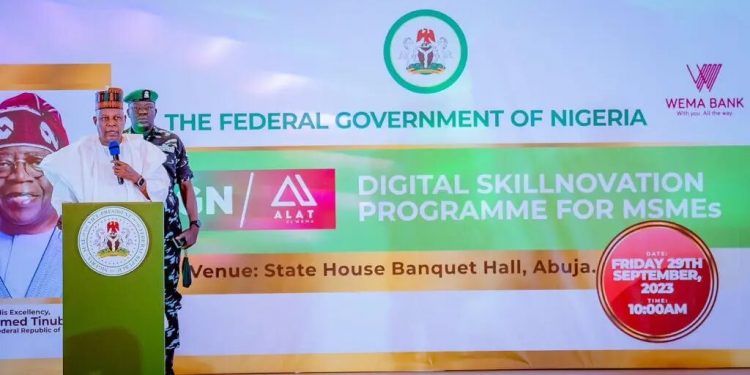Under President Bola Tinubu’s administration, the Federal Government of Nigeria has secured investment commitments totaling $32 billion, as announced by Minister of Trade, Industry, and Investment, Doris Anite. This surge in foreign capital is credited to the government’s efforts in improving the ease of doing business environment.
Key Highlights:
Investment Commitment: $32 billion spread across multiple sectors.
Job Creation: Over 16,000 jobs have been generated through programs initiated by the Small and Medium Enterprises Development Agency of Nigeria (SMEDAN).
Revenue Generation: The Lagos International Trade Fair Complex witnessed a substantial increase in revenue, generating N430 million in Q1 2024 compared to N17.9 million in the corresponding period the previous year.
Support and Funding Initiatives for SMEs:
The Federal Government has initiated the disbursement of the Presidential Conditional Grant Scheme (PCGS) to aid micro, small, and medium-scale enterprises (MSMEs).
Program Details:
Agreements Signed: Three agreements with the Bank of Industry (BOI) amounting to over N200 billion in funding.
N75 billion MSMEs Fund: Geared towards supporting micro, small, and medium-scale enterprises.
N50 billion Presidential Conditional Grant Scheme: Designed to alleviate the economic impact of fuel subsidy removal.
N75 billion Manufacturing Sector Fund: Aimed at supporting businesses within the manufacturing sector.
Specific Objectives:
MSMEs Fund: Targets addressing high production costs resulting from infrastructure deficiencies.
PCGS: Provides grants to mitigate the economic consequences of fuel subsidy removal.
Manufacturing Sector Fund: Aims to reduce production costs and bolster the growth of the manufacturing sector.
Implementation Strategy:
Disbursement: Follows a phased approach with significant disbursements scheduled to commence on April 19, 2024.
Beneficiaries: Focuses on distributing assistance to at least 1,000 nano business owners in each of the 774 local governments and six council areas in the FCT, with particular attention to women and youth.
Targeted Sectors: Encompasses trade, food services, ICT, transportation, artisans, creatives, and other sectors identified by the ministry.
Impact and Future Plans:
The investment commitments and support programs aim to:
Economic Revitalization: Stimulate economic growth by supporting vulnerable businesses and creating job opportunities.
Employment Preservation: Maintain existing jobs while creating new employment avenues.
Youth Empowerment: Empower youth and women entrepreneurs to foster inclusive growth.
Reduction of Production Costs: Assist businesses in managing escalating production costs due to infrastructural deficiencies.
The Federal Government’s initiatives, coupled with strategic partnerships and efficient execution, are poised to significantly influence Nigeria’s economic landscape, ensuring sustainable growth and development across various sectors.








